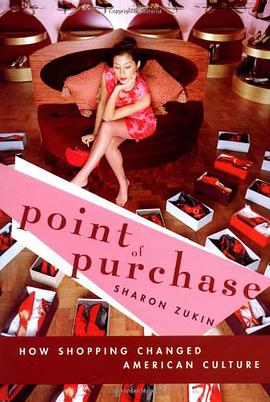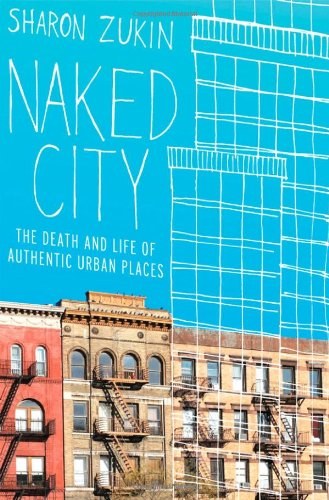Point of Purchase 豆瓣
作者:
Sharon Zukin
Routledge
2003
- 10
From Publishers Weekly
'We shop therefore we are' seems to be the conclusion of this homage to the great American pastime. Rather than pass judgment on our shopping compulsion, Zukin, an endowed chair of sociology at the City University of New York, provides a historical and analytical context to help readers understand how shopping has affected public and private life from the mid-19th century to today. Zukin's 1995 book, The Cultures of Cities, described her experiences growing up in one of Philadelphia's retail neighborhoods and examined how other shopping districts, like 125th Street in Harlem and Fulton Street in Brooklyn, had gone through significant racial changes. Here she dissects shopping culture at large, from eBay and the Internet to the death of Woolworth's and the birth of WalMart. Well researched and thorough, the book unearths how and where we shop and, more importantly, why consumer culture has so much power over us. Zukin examines these issues by analyzing both particular individuals' experiences-such as a young woman's search for the perfect pair of leather pants-and retailers' shifts in business strategies. For many people, Zukin writes, shopping isn't simply a transaction, but an experience: "We dream of shopping for beauty, truth and perfection, and if we do not shop for a perfect society, at least we shop for a perfect self." She believes that the noblest aspect of shopping is finding a community, a discovery that usually happens at a place like a farmer's market or a neighborhood store, where interaction among customers is fostered. Rallying for these public spaces rather than buying things, she argues, should be what we use shopping to achieve. Though this book is more likely to appeal to specialists than to general readers, Zukin's lively prose and vivid anecdotes may win her a larger audience.
Copyright 2003 Reed Business Information, Inc.
'We shop therefore we are' seems to be the conclusion of this homage to the great American pastime. Rather than pass judgment on our shopping compulsion, Zukin, an endowed chair of sociology at the City University of New York, provides a historical and analytical context to help readers understand how shopping has affected public and private life from the mid-19th century to today. Zukin's 1995 book, The Cultures of Cities, described her experiences growing up in one of Philadelphia's retail neighborhoods and examined how other shopping districts, like 125th Street in Harlem and Fulton Street in Brooklyn, had gone through significant racial changes. Here she dissects shopping culture at large, from eBay and the Internet to the death of Woolworth's and the birth of WalMart. Well researched and thorough, the book unearths how and where we shop and, more importantly, why consumer culture has so much power over us. Zukin examines these issues by analyzing both particular individuals' experiences-such as a young woman's search for the perfect pair of leather pants-and retailers' shifts in business strategies. For many people, Zukin writes, shopping isn't simply a transaction, but an experience: "We dream of shopping for beauty, truth and perfection, and if we do not shop for a perfect society, at least we shop for a perfect self." She believes that the noblest aspect of shopping is finding a community, a discovery that usually happens at a place like a farmer's market or a neighborhood store, where interaction among customers is fostered. Rallying for these public spaces rather than buying things, she argues, should be what we use shopping to achieve. Though this book is more likely to appeal to specialists than to general readers, Zukin's lively prose and vivid anecdotes may win her a larger audience.
Copyright 2003 Reed Business Information, Inc.

